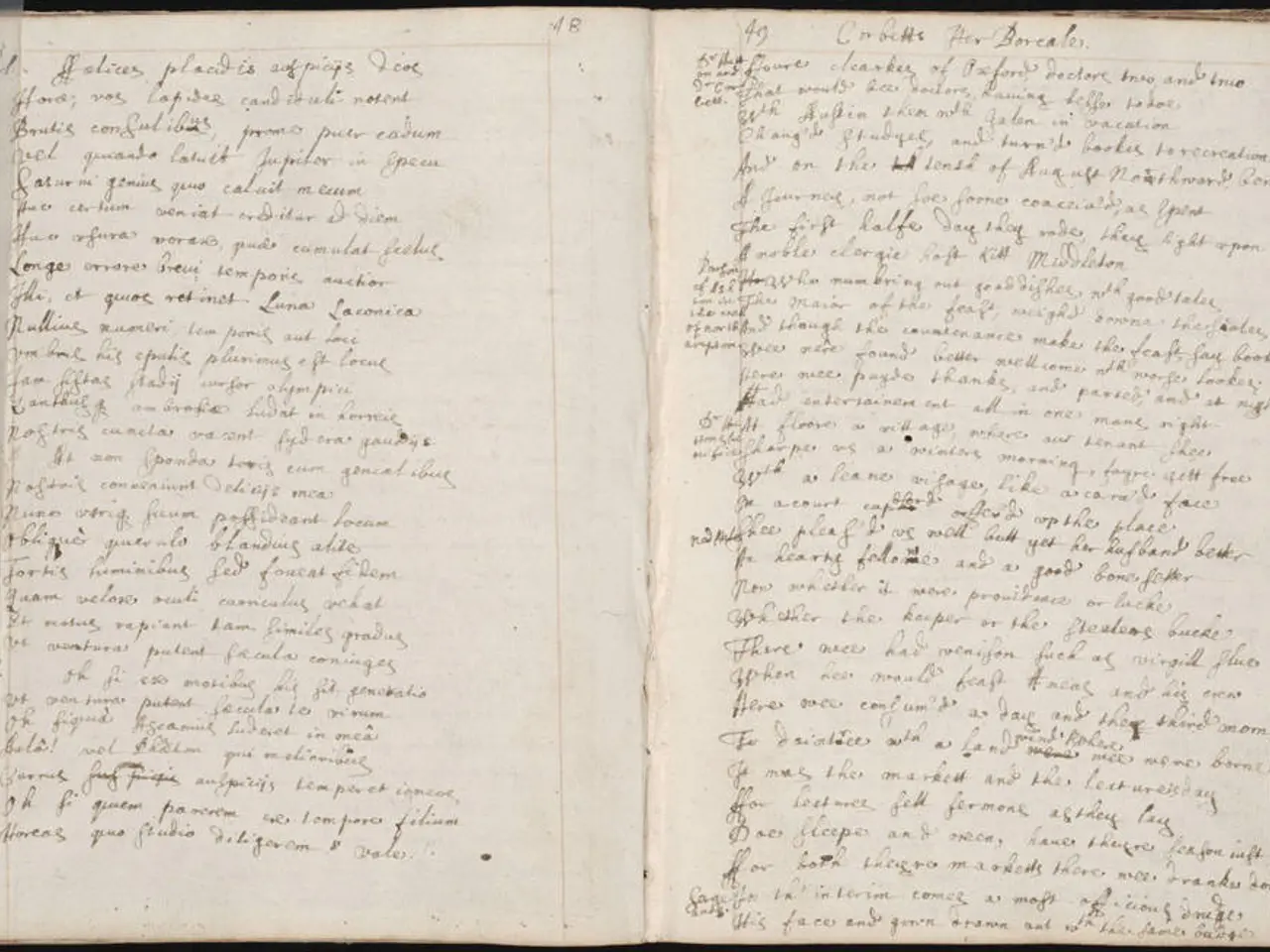Writng a Well- Crafted Precept Response Guide
In the realm of higher education, Princeton University's unique precept system stands out as a testament to active learning and collaborative engagement. One of the key components of this system is the precept response assignment, a weekly task designed to deepen students' understanding of course material and hone their analytical writing skills.
The precept response assignment is part of the broader teaching and learning format that involves precepts, small, discussion-based sections led by teaching assistants or instructors. These sessions aim to supplement lectures by encouraging active discussion rather than passive listening.
The precept system's roots can be traced back to Princeton's commitment to small-group learning and individualised attention. By fostering interactive education, critical thinking, and writing proficiency, the precept system aligns with Princeton's educational objectives.
The precept response assignment typically requires students to write brief essays or responses to prompts related to the precept discussions or course readings. Actual completion of the course readings is the single most important component of the precept response, with engaging with the readings as you progress through them being essential for a successful response.
Graduate students often serve as preceptors, leading their own sessions, grading essay assignments, and attending lectures as part of their Teaching Assistant duties. This role provides practical experience to these students in teaching and assessment, integral to their academic development.
For students who may struggle with clarity of expression, Princeton offers resources such as the Writing Center. Refining marginal notes through the lens of the assignment's instructions is also beneficial, helping students remember and reflect on their initial reactions to a passage.
It's important to note that the precept response does not need to offer a "blindingly original theory of everything." Instead, it serves as a tool for instructors to gauge student understanding and tailor guidance accordingly, and for students to stay on track with course readings and assess their ability to do so. Academic humility fares better than egoistic attempts to demonstrate supposed "mastery" of the material.
Lastly, the precept response assignment is not the only valuable resource Princeton offers. Making use of office hours, for instance, can provide additional opportunities for students to engage with their instructors and deepen their understanding of course material.
In conclusion, the precept response assignment is a core element of Princeton’s distinctive precept system, promoting active learning and providing an essential pedagogical link between lecture content and students’ analytical writing. By embracing this system, Princeton fosters a collaborative learning environment where students engage with peers and instructors closely, ultimately enhancing their educational experience.
[1] FitzGerald, S. (2022). Making the Most of Princeton's Precept System: A Guide for Students. The Daily Princetonian. [4] FitzGerald, S. (2021). A Global Look at Educating Researchers: Insights from Princeton's Junior Paper (JP) Program. The Daily Princetonian. [Not available] FitzGerald, S. (2020). Second Year BSE Fall Experience in the Engineering Sequence and Reflection. The Daily Princetonian. [Not available] FitzGerald, S. (2019). Making Use of Office Hours: A Student's Guide. The Daily Princetonian.
- The precept response assignment, a weekly essay task in Princeton University's precept system, is integral to both students' learning and academic development, focusing on active writing and critical thinking, aligning with Princeton's objectives in education-and-self-development.
- In addition to the precept response assignment, Princeton's committed approach to online-education offers resources such as the Writing Center, which aids junior students in improving their writing skills and clarity of expression for their junior paper assignments.




